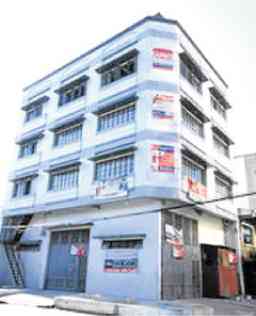The Ayala Group’s education arm announced that it would accept public school students, who would receive vouchers from the Department of Education (DepEd), at no added cost.
Beth Lui, president and chief executive officer of Affordable Private Education Center (Apec) Schools, said they would accept 3,500 senior high school (SHS) students in their afternoon classes for only P22,500.
The fee is equivalent to the amount of the DepEd voucher a public school student in the National Capital Region who finishes Grade 10 will receive.
Lui said the amount would cover not only tuition and other school fees but also books.
Since Apec Schools would not collect additional fees, Lui said students would only have to pay for the uniform.
“It is our goal that as many Filipinos as possible should have access to modern and tech-enabled learning systems. DepEd’s SHS vouchers and our innovations enable us to offer our unique program to thousands of deserving students and prepare them for a brighter future,” Lui said.
Apec Schools are low-cost private secondary institutions launched by Ayala Education, in partnership with the United Kingdom-based learning company Pearson PLC.
There are currently 24 Apec schools in Metro Manila and Calabarzon (Cavite, Laguna, Batangas, Rizal and Quezon), with some 3,300 students. Regular tuition is P32,500, inclusive of school fees and books.
Lui said Apec Schools were open not only to public school students but also private school students who are beneficiaries of DepEd’s Education Service Contracting (ESC) program. She said ESC program beneficiaries would be accommodated in the morning classes.
In the morning shift, private school students who are beneficiaries of the voucher program only have to pay P14,500.
Public school students who want to attend morning classes have to add P10,000 to the voucher from DepEd.
By matching their afternoon class fee to the amount of the DepEd voucher, Lui said they wanted to dispel the notion that morning classes were more effective and efficient for students.
The emergence of low-cost private schools in the country, like Apec, was criticized recently by Education International, a worldwide organization of teachers in 170 countries.
Canadian researcher Curtis Riep said his study showed that the government’s “lack of political will to finance public education” resulted in its spending around P31 billion as payment to private schools that took in students that could no longer be accommodated in public schools.
Ayala Education president and CEO Alfredo Ayala said that while the government had an important role in providing social services, such as education, its practice of involving the private sector was “a very good hybrid.”
“[The] government provides majority of the schools but at the same time it is asking the private sector to compete and provide alternatives,” he said. Such a setup, he said, resulted in “better outcomes for students.”
Ayala said the Apec Schools’ setup worked well in the Philippine setting because it had been designed specifically to respond to market needs.
“It takes into account what students and families are looking for; the specific needs for English, technology and employability. It responds to what employers are looking for and it addresses the [problem of establishing schools in urban areas that are densely populated], which we’re trying to serve,” he said.
With the rollout of the SHS program in school year 2016-2017, Apec Schools will offer the academic track, focusing on Accounting and Business Management, which Lui said were the Ayala group’s key expertise.
